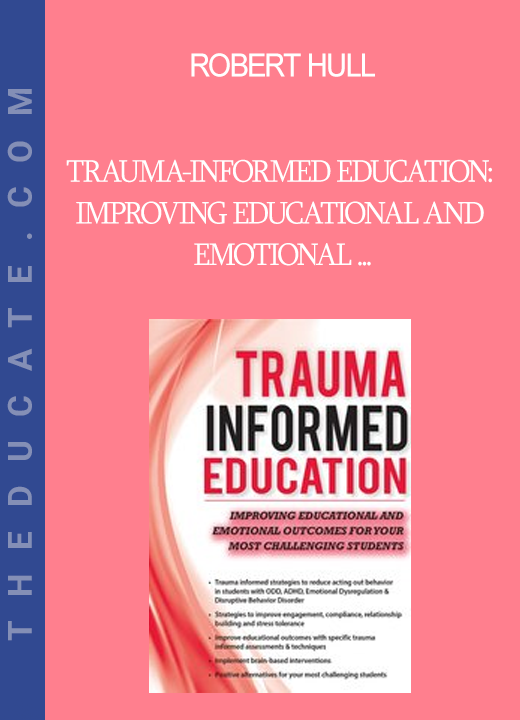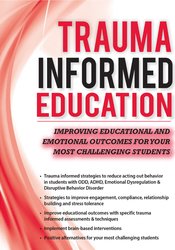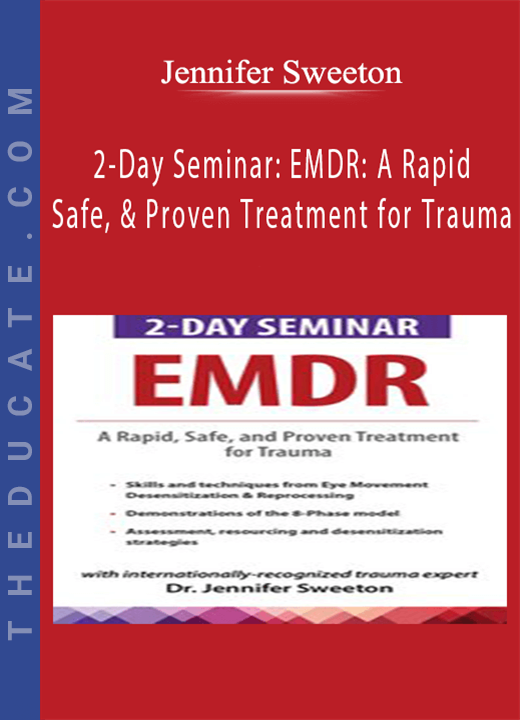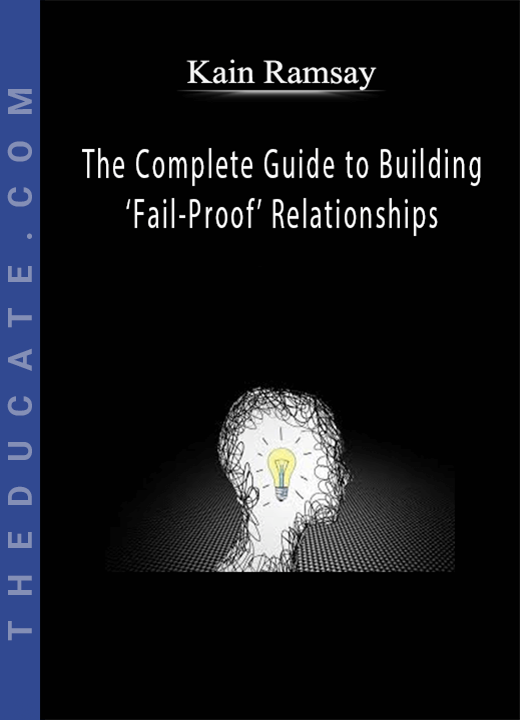Description
Robert Hull – Trauma-Informed Education: Improving Educational and Emotional Outcomes for Your Most Challenging Students
- Faculty:
- Robert Hull
- Duration:
- 5 Hours 42 Minutes
- Format:
- Audio and Video
- Copyright:
- Mar 02, 2017
Description
- Trauma-informed strategies to reduce acting out behavior in students with ODD, ADHD, Emotional Dysregulation & Disruptive Behavior Disorder
- Strategies to improve engagement, compliance, relationship building and stress tolerance
- Improve educational outcomes with specific trauma informed assessments & techniques
- Implement brain-based interventions
- Positive alternatives for your most challenging students
As an educator, you are expected to teach and engage children—even those with the most challenging behaviors. These are the students that no matter what you try, you just can’t reach them. Like the boy with disruptive behaviors that keep him sitting in the principal’s office. Or the student that struggles to focus and complete assignments. What about the girl who is completely withdrawn? Is she even more challenging than the boy with the aggressive outbursts?
If your current interventions are not reducing these challenging behaviors, then you need to attend this program! Join leading education expert Robert Hull, as he teaches you evidence-based trauma-informed education strategies that will reduce the achievement gap, decrease referrals for highly restrictive special education programs, as well as drastically improve:
- Emotional functioning
- Acting out behaviors
- Aggressive behaviors
- Relationships
- Student engagement
Using a trauma-informed approach will create an affiliation between teacher, student and family member that leads them to all work together for success rather than constantly being in conflict.
It’s a revolution in education that will help you connect with your most challenging students!
Handouts
| Manual (5.54 MB) | 89 Pages | Available after Purchase |
Outline
The Impact of Trauma on School Functioning and Classroom Instruction
- How the traumatic experiences of students manifest in school settings
- Academics & cognitive skills
- Behavioral functioning
- Social emotional functioning
- Developmental differences in response to trauma
- Impact of trauma on the following disorders:
- ODD
- ADHD
- Emotional Dysregulation
- Disruptive Behavior Disorders
- Childhood trauma and a framework for intervention
- Attachment
- Self-regulation
- Competency
STRATEGIES, TECHNIQUES & INTERVENTIONS TO ADDRESS TRAUMA & OTHER BARRIERS TO LEARNING
Interventions to Reduce Disruptive Behavior and Suspension Rates
- Turning rage and helplessness into constructive action
- Effectively confront loss and grief
- Proactively utilize mindfulness
- Address anger regulation and expression
- Teach students how to relax, reframe and cope
Strategies to Increase Motivation, Engagement and Academic Success
- Promote grit tenacity and perseverance
- Turn moral disengagement into moral engagement
- Create opportunities for meaningful connection and affiliation
- Establish brain-based interventions
- Utilize effective praise as a motivator
- Manage YOUR frustration
- Move from reactive to proactive
Skills and Competencies to Help the Student Overcome Challenging Situations
- Engage thinking to mitigate emotional reactivity
- Increase access and use of executive functioning skills
- Making and keeping commitments
- Integrate stress reduction into the daily schedule
- Embed executive functioning strategies into the daily routine
- Expand the range of competencies
Techniques to Develop School-wide Resilience & Create Trauma-Sensitive Schools
- Flexible Framework: a systematic overview that identifies, integrates and ensures compliance
- Systems to create safe, supportive schools for students impacted by traumatic experiences
Faculty
Robert Hull, MA, ED, EDS, MHS Related seminars and products: 2
Robert Hull, EDS, MED, NCSP, award winning school psychologist, career educator, special education administrator and professor, is an expert in implementing evidence based practice into practical, easy to implement strategies that lead to desired outcomes.
Robert’s hands-on assistance has helped and inspired thousands of educators who work in the most challenging schools in our nation. His 25 years of experience working with youth and teachers in areas ranging from urban inner cities to impoverished rural counties, has led to his recognition by local school systems, state governments, and state legislatures. Robert Hull has a reputation for taking on the biggest challenges in the most difficult school systems. As an administrator at both the system/district and state levels, he implemented reforms in the areas of disproportionality, implementing evidence based practices, and educating traumatized children.
Robert Hull graduated cum laude from Arizona State University with a degree in psychology, and obtained graduate degrees in education and public health from Arizona State University, Memphis State University, and Johns Hopkins School of Public Health. He is also the co-author of CBT Toolbox for Children and Adolescents (PESI, 2017).
Robert’s style uses humor to instill hope and motivation in order to release the anger and disillusionment that educators working with challenged youth face. A passionate presenter, he creates optimism while making compelling points. Robert’s “get the job done” approach focuses on creating a culture of success where everyone is responsible for leadership and everyone gains from success.
Speaker Disclosures:
Financial: Robert Hull is an author for Oxford University Press and receives royalties. He receives a speaking honorarium from PESI, Inc.
Non-financial: Robert Hull has no relevant non-financial relationship to disclose.







Reviews
There are no reviews yet.